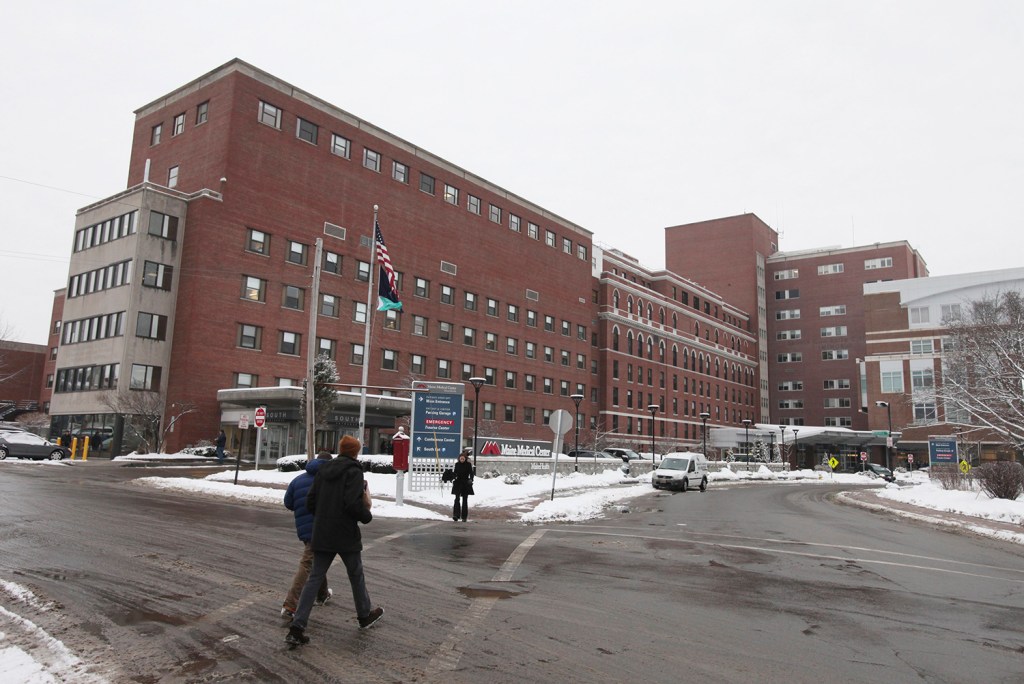AUGUSTA — More than 40 organizations urged state lawmakers Thursday to reject Gov. Paul LePage’s plan to require municipalities to tax nonprofits, including land trusts, museums, summer camps, hospitals, private schools and food pantries.
Representatives from those organizations told lawmakers on the Legislature’s budget and taxation committees that the governor’s proposal could devastate some nonprofits, some of which are already working on thin financial margins. Others argued that their organizations provide services so that government agencies don’t have to.
“It’s a fallacy to claim that nonprofit hospitals are draining resources from municipalities,” said Katie Fullam Harris, a lobbyist for MaineHealth, the organization representing Maine Medical Center and several other hospitals.
LePage has proposed the nonprofit tax as part of a complex tax reform package embedded within his proposed two-year, $6.3 billion state budget. Administration officials have said that the proposal is designed to compensate localities for providing infrastructure and services that nonprofits use but don’t pay for because they are not subject to property taxes. The proposal has also been presented as a way for cities and towns to offset another provision in the LePage budget that would eliminate municipal revenue sharing.
The property tax proposal would eliminate exemptions for nonprofit organizations that own property with an assessed value of $500,000 or more. The proposal would not apply to churches or nonprofits with less valuable properties.
Scrutiny of the nonprofit tax proposal initially centered on large nonprofits such as hospitals and private colleges. However, other smaller organizations with high land values have come forward to say they, too, would be affected by the tax.
South Portland Finance Director Greg L’Heureux told lawmakers that at least 12 property owners in the city would be taxed under the governor’s plan, including the American Legion Post, the local Girl Scouts chapter and The Spring Point Ledge Light Trust, a nonprofit that oversees and maintains the lighthouse in South Portland. The trusted posted $38,000 in income in 2012, according to its tax filings.
Clare Whitney, with the Good Shepherd Food Bank in Auburn, said that paying property taxes wouldn’t sink the organization, but would likely mean that 100,000 free meals wouldn’t be distributed to hungry clients.
Harris, of MaineHealth, along with Jeff Austin, the lobbyist for the Maine Hospital Association, argued that hospitals provide millions of dollars in free care to patients who can’t afford it while subsidizing MaineCare, the state’s Medicaid program.
Austin estimated that the governor’s plan would cost hospitals $10 million to $20 million.
Other nonprofits also forecast dire consequences. Officials for Shalom House, a nonprofit that provides mental health services, estimated that the organization would face a property tax bill of $90,000 and be forced to cut services.
Taxing or charging fees to nonprofits has been studied at the State House at least seven times over the past 35 years but never enacted.
The Maine Municipal Association, which represents over 450 Maine cities and towns, took a neutral position on the LePage plan. Geoff Herman, the association’s lobbyist, told lawmakers that towns are interested in ways to collect fees from nonprofits, particularly those that are heavy users of local infrastructure. However, he said, the organization isn’t sure that taxation is the best path.
Fees, he said, leave the decision in the hands of local officials.
Send questions/comments to the editors.


